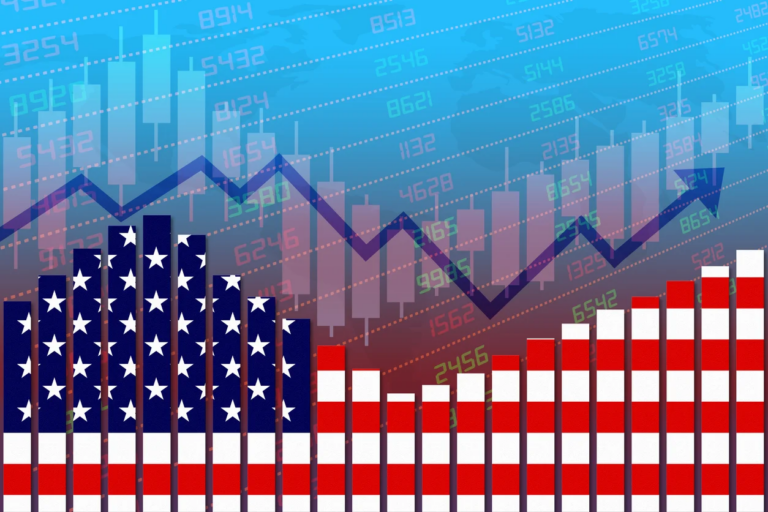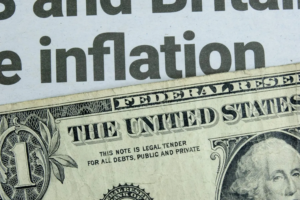
U.S. Inflation Trends and Global Economic Stability
When inflation is high, purchasing power, interest rates, and the stability of the financial system are affected. Inflation trends in the U.S. are tracked not only across the country but also around the world because of the tremors that threaten world peace brought into the financial world by each U.S. inflation report. Knowing the effect of inflation in U.S. on international economy is important for economic policymakers, and people looking for investment opportunities as well as a business.

U.S. Inflation — Its Contribution to the Global Market
The U.S. Dollar’s Dominance
As the world’s dominant reserve currency, the value of the U.S. dollar can affect economies across the globe. A surge in inflation in the U.S. often results in a weaker dollar. This, in turn, impacts on global trade because a number of commodities, oil and gold for instance, are quoted in dollars. For countries that import these goods it could lead to higher costs that would lead to domestically higher inflation.
Consequences for World Interest Rates
The Federal Reserve is the major player in American inflation control, through interest rate changes. Fed raises rates when U.S inflated high and its trying to cool down the economy. U.S. interest rates are higher, which attracts foreign investment and strengthens the dollar but also raises borrowing costs around the world. This could particularly affect emerging markets that will face increased debt servicing costs and implosion.
Influence on Global Trade
The inflation rate directly influences the competitiveness of the U.S. As prices increase, goods shipped for American consumption get costly for outsiders, thereby limiting demand. For example, inflation that leads to a weaker dollar can make U.S. exports relatively attractive and shift trade balances globally. Nations that have export-centric economies in the U.S. must recalibrate their economic advisors.The application process for the Chase Sapphire Preferred is straightforward; it can usually be completed in a matter of minutes online. Check your credit score (which should be good to excellent — typically, 700+ to improve your chances of getting approved) before you apply. When reviewing applications, Chase takes into account credit history as well as income level and existing accounts.
To apply, go to the Chase website and submit an application form with personal and financial information for review. If you are approved, you’ll get your card in 7–10 business days. Just activate your card and you can track your rewards instantly. To utilize your benefits to the fullest, try to hit the minimum spend threshold (the amount you need to spend to unlock a welcome bonus, for example) within the first three months.
If you are an existing Chase customer, you could get a pre-approved offer that can fast-track the process. You’ll be on your way to maximizing your travel rewards with the right planning.

Inflation Are Also Affected By Global Supply Chains
US Inflation can affect the global supply chain too. Increased prices for goods globally: Escalating prices for raw materials as well as transport and work can cause greater rates for merchandises around the globe. Companies may have to reassess their sourcing strategies, find alternative suppliers, or transfer higher costs to consumers, which will add to global inflationary pressures.
Ways to Reduce Global Effects
Diversification of Reserves
For this reason, it is essential that countries adopt measures such as the diversification of foreign currency reserves to protect themselves from the impact of U.S. inflation. Owning some currencies – the dollar is very bouncy.
Building Up Local Economies
Strengthening financial systems at home can protect against international bursts of inflation. More stable economies can result from investments-enabling, productivity-enhancing and financial-inclusion-promoting policies.
International Cooperation
Financial institutions such as the International Monetary Fund (IMF) can, through global coordination, help stabilize nations in crisis due to inflation. Working together can therefore help stabilise both currencies and economies and reduce slightly wider risks to the world.
Conclusion
Whether everything is good and there don’t seem to be too many bumps on the road is entirely up to what happens in terms of U.S. inflation. Because of the linkages of financial markets, trade, and monetary policies, changes in U.S. Recognizing these dynamics will better arm developed and emerging economies to face this inflationary challenge—and lead to greater global stability.
Our Post


From Paycheck to Prosperity: The Ultimate Blueprint for Sustainable Wealth Building
